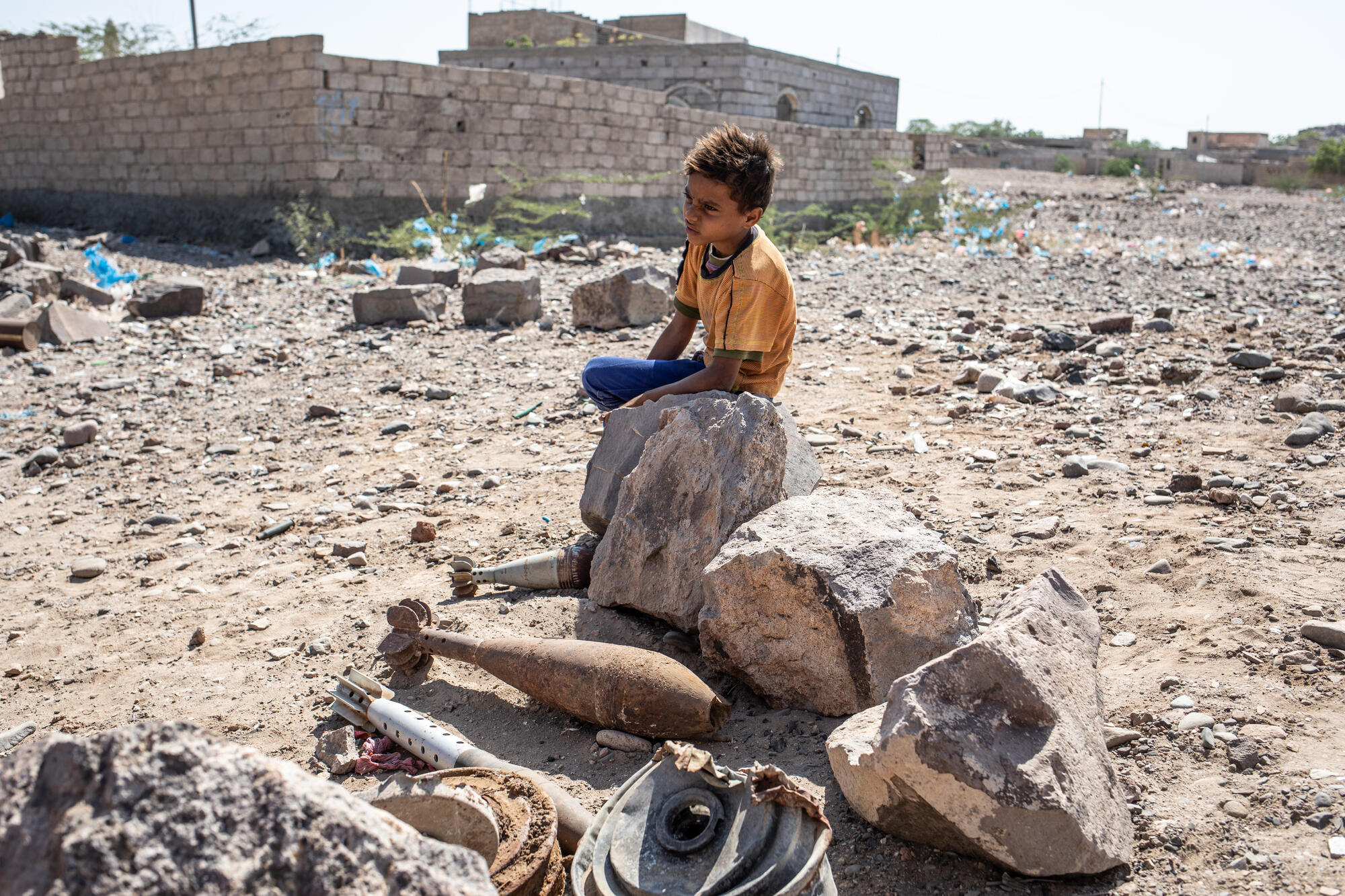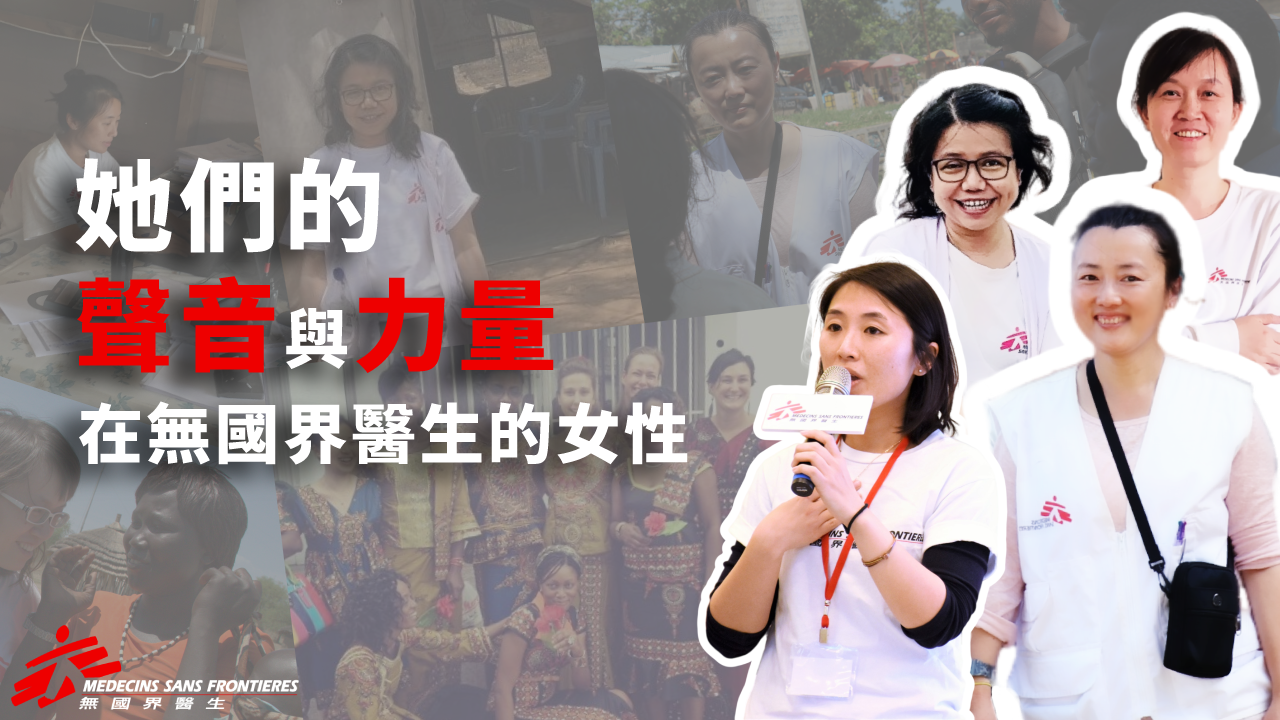Mocha, Yemen:Children and the Landmines

Dr. Shannon Chan’s first mission was to South Sudan in 2016 and in late 2019, she set off on her second mission to Mocha in Yemen, where she worked as a trauma surgeon and trainer to national staff.. It has become extremely difficult to obtain access to medical care in the area. The Mocha Hospital mainly admits patients suffering from major traumas, acute surgical, gynaecological and obstetrics emergencies. During her mission, an incident that really affected her was a group of innocent children killed and injured by landmines.
For people in Mocha, an area for people displaced by conflict in Yemen, simply walking on the streets puts their lives at risk. When playing on the street, a child along with a group of eight others — ranging from age 9 to 13 — accidentally stepped on a landmine and led to the explosions of a total of three landmines. Before the children could run, the landmines exploded. These landmine explosions usually cause massive injuries, not only to the child who stepped on the landmine, but also others in close proximity. The blast caused traumatic amputation of both legs of the child who stepped on it. It also causes a major thrust throwing off other children causing head injuries, fractures and burn injuries. It also caused penetrating shrapnel injuries to some.
Shannon described as five of the children in more critical conditions were first sent to the Mocha field hospital:
“As there were insufficient resources for medical care of everyone at once, nurses triaged the patients to categorise who was in most urgent need of medical care. Two of the children categorised with a red tag suffered from injuries so severe that they were beyond help. One of them had an open fracture of the skull and was already gasping for breath. The other had no obvious external injuries but was unconscious with dilated non-reactive pupils and a dropping blood pressure and heart rate. This signifies severe brain injury, likely from bleeding.
I examined the injuries of the third child, a boy, who had a red tag – a label used for those critically ill.
The fragments of landmine caused penetrating injuries tohis legs, arms and abdomen. His face was so pale that you could tell he had lost a huge amount of blood. We had to rush him to surgery.
My translator helped me call over the child’s mother to seek her permission for the surgery. As I was explaining to her the situation of that child, she interrupted me with a shaking voice, “How about the other two children?” It was only at that moment that I realised the three children all belonged to her. It was absolutely heart-wrenching to tell her that two other children, two sons, were very unlikely to survive due to the severity of their head injuries.
The mother grabbed me closer to her son’s bodies, one by one, and begged me to save them. She almost knelt to the ground. All I could do was keep apologizing that there was not much we can do to save them. It was the most difficult moments, for I knew there were no words that would possibly comfort the mother. Looking into her eyes, I can feel her desperation and hopelessness. I took a deep breath and held back my tears. I knew at that moment, the best thing I could do for her was to save her third child. The translator convinced her to let me continue to work in saving her third son’s life. During the surgery, I took out the fragments of landmines, which were like bullets, from his body and treated the internal bleeding. The shrapnel caused perforations to the kidney, duodenum, stomach and spleen. Fortunately, after the operations, he recovered well. The other six children who stood farther from the explosion suffered fractures of extremities but are relatively minor injuries and would heal with surgeries and physiotherapy rehabilitation.
Since then, the mother came to the hospital every day and took care of the third son. She would always come up to me to say how thankful she was to us for saving her third son. Despite this, and you could still see the sorrow in her eyes for the loss of her other two beloved children. I guess living in these conflict zones, one is forced to toughen up and struggle to live on. What other choices do you have if not?”
These landmines which were planted during the conflict have become hazards for the naive and innocent children. The children who survived have adapted to life since the blast—but no child should have to face these struggles. After treating so many civilians who have suffered the tragic consequences of conflict, Shannon says:
“I still feel the indescribable pain for the loss of every life during the surgeries.”
At times during the mission, Shannon felt helpless seeing the numerous injuries every day due to the conflict. what she can do as a surgeon in the midst of all the challenges is to save as many lives as possible, and to let the people know that at least someone cares.






發表評論